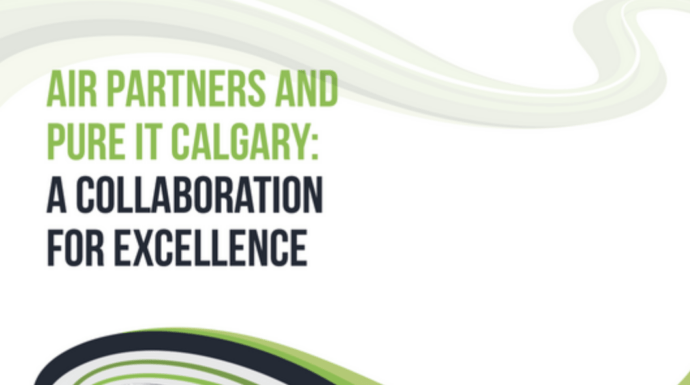Are All Your Calgary Oil & Gas Company Assets Protected From A Cyber Attack? Essential Safeguards for Industry Security
Calgary’s oil and gas sector faces significant cybersecurity risks. Recent incidents highlight the urgent need for robust protection measures. About 25% of Canadian oil and gas organizations reported experiencing a cyber incident in 2019, the highest rate among all critical infrastructure sectors.
The Suncor cybersecurity incident serves as a stark reminder of the industry’s vulnerabilities. As cyber threats evolve, Calgary’s oil and gas companies must assess their security posture and implement comprehensive protection strategies.
Protecting your assets from cyber attacks requires a multi-faceted approach. This includes evaluating your cybersecurity measures, implementing advanced threat detection systems, and developing incident response plans. Employee training and fostering a culture of cybersecurity awareness are equally important in safeguarding your company’s valuable assets.
Key Takeaways
- Calgary’s oil and gas sector faces heightened cybersecurity risks, necessitating robust protection measures
- Comprehensive cybersecurity strategies should include threat detection, incident response planning, and employee training
- Regular assessment and updating of security measures are essential to protect against evolving cyber threats
Understanding Cybersecurity in the Oil & Gas Sector
The oil and gas sector is routinely targeted by cyber attackers, making cybersecurity a critical concern for your Calgary-based company. Cyber threats in this industry are diverse and can have severe consequences.
Your oil and gas operations rely heavily on operational technology (OT) and information systems. The digital transformation of these assets has expanded the attack surface, exposing your company to new vulnerabilities.
Common cyber threats you may face include:
- Business Email Compromise (BEC) schemes
- Ransomware attacks
- Cyber espionage
- Sabotage attempts
These threats can disrupt your supply chain, compromise sensitive data, and even impact your ability to deliver oil and gas products.
Financial gain is often the primary motivation for cybercriminals targeting your sector. However, some attacks may be politically motivated or aimed at causing widespread disruption.
To protect your assets, you need a comprehensive cybersecurity strategy that addresses IT and OT systems. This includes:
- Regular vulnerability assessments
- Employee training on cybersecurity best practices
- Robust incident response plans
- Continuous monitoring of your digital infrastructure
By prioritizing cybersecurity, you can safeguard your Calgary oil and gas company’s operations and maintain its competitive edge.
Evaluating Your Current Cybersecurity Posture
Assessing your Calgary oil & gas company’s cybersecurity stance is crucial for protecting valuable assets. A thorough evaluation helps identify vulnerabilities and strengthen defenses against potential cyber-attacks.
Risk Assessment Procedures
Start by conducting a comprehensive risk assessment of your digital infrastructure. Identify critical systems, data, and processes that cybercriminals could target. Evaluate potential threats like phishing attacks, malware, or insider risks.
Analyze your current security measures and their effectiveness. This includes firewalls, antivirus software, and access controls. Assess your employees’ cybersecurity awareness and training programs.
Consider engaging external cybersecurity experts to perform penetration testing. This simulates real-world attacks to uncover weaknesses in your defences.
Prioritize risks based on their potential impact and likelihood. Develop a risk mitigation plan to address identified vulnerabilities.
Asset Management Strategies
Create a comprehensive inventory of all digital assets, including hardware, software, and data. Categorize assets based on their criticality to your operations and the sensitivity of the information they contain.
Implement strict access controls and user authentication protocols to protect sensitive assets. Use multi-factor authentication for critical systems and regularly review user privileges.
Establish a patch management strategy to keep all software and systems up-to-date. Regularly back up important data and test recovery procedures to ensure business continuity in case of a cyber incident.
Consider implementing MDR (Managed Detection and Response) solutions to monitor your network for suspicious activities 24/7. This proactive approach can help detect and respond to threats, minimizing potential damage.
Critical Infrastructure Protection
Protecting critical infrastructure in Calgary’s oil and gas sector requires a multi-faceted approach. Robust operational technology security measures and effective network segmentation are essential to a comprehensive cybersecurity strategy.
Operational Technology Security
Securing operational technology (OT) systems is crucial for Calgary’s oil and gas companies. To limit who can interact with critical OT systems, rigorous access controls must be implemented. Multi-factor authentication should be mandatory for all users.
Regular security assessments of OT networks can help identify vulnerabilities before attackers exploit them. Keeping all OT systems and software up-to-date with the latest security patches is vital.
Consider deploying intrusion detection systems designed explicitly for OT environments. These can alert you to potential threats in real time.
Ensure your staff receives ongoing training on OT security best practices. This helps create a culture of security awareness throughout your organization.
Network Segmentation
Proper network segmentation is essential to contain potential breaches and protect critical assets. Your network should be divided into separate zones based on function and security requirements.
Implement strict firewall rules between network segments to control traffic flow. This limits an attacker’s ability to move laterally if they breach one part of your network.
Consider using virtual local area networks (VLANs) to isolate critical systems further. This adds an extra layer of protection for your most sensitive assets.
Audit your network segmentation regularly to ensure it remains effective as your infrastructure evolves. Automated tools can help you maintain proper segmentation and quickly identify any misconfigurations.
Monitor traffic between network segments to detect any unusual activity that could indicate a breach attempt.
Threat Detection and Monitoring
Protecting your Calgary oil and gas company from cyber attacks requires robust threat detection and monitoring systems. These tools help you avoid potential security breaches and respond swiftly to suspicious activity.
Real-Time Threat Intelligence
Real-time threat intelligence is crucial for identifying potential security incidents in your oil and gas operations. It provides up-to-date information on emerging threats and vulnerabilities specific to your industry.
To implement effective real-time threat intelligence:
- Subscribe to trusted threat feeds tailored to the energy sector
- Use machine learning algorithms to analyze vast amounts of data quickly
- Integrate threat intelligence into your existing security infrastructure
You can proactively defend against new and evolving cyber threats by leveraging real-time threat intelligence. This approach lets you anticipate potential attacks and take preventive measures before they impact your assets.
Intrusion Detection Systems
Intrusion Detection Systems (IDS) are vital in safeguarding your oil and gas company’s digital infrastructure. These systems monitor network traffic and system activities to identify suspicious behaviour or unauthorized access attempts.
Key features of effective IDS for oil and gas companies include:
- Anomaly detection to flag unusual patterns in network traffic
- Signature-based detection to identify known attack patterns
- Integration with your Security Information and Event Management (SIEM) system
Regular updates and fine-tuning of your IDS ensure it remains effective against the latest threats. You should also conduct periodic penetration testing to evaluate the system’s effectiveness and identify potential vulnerabilities in your network.
Incident Response and Recovery Planning
Effective incident response and recovery planning are crucial for protecting Calgary Oil and Gas Company assets from cyber attacks. These plans outline steps to detect, respond to, and recover from security breaches quickly and efficiently.
Incident Response Teams
Incident response teams play a vital role in managing cyber security incidents. They should include IT, operations, legal, and communications department members.
Your team must be well-trained and ready to act at a moment’s notice. Regular drills and simulations help keep skills sharp and processes refined.
Clear roles and responsibilities are essential. Designate team leaders, technical experts, and communication liaisons to ensure smooth coordination during an incident.
Establish communication protocols for internal and external stakeholders. This includes notifying relevant authorities, such as the Canadian Centre for Cyber Security.
Recovery Protocols
Recovery protocols outline restoring systems and data after a cyber attack. These should be detailed, prioritized, and regularly updated.
Start by thoroughly assessing the damage. Identify compromised systems and data to determine the scope of recovery efforts.
Implement containment measures to prevent further damage. This may include isolating affected systems or temporarily shutting down certain operations.
Prioritize the restoration of critical systems and data. Have backup plans in place for essential operations to minimize downtime.
Document all recovery actions taken. This information is valuable for improving future response efforts and may be required for legal or insurance purposes.
Conduct a post-incident review to identify lessons learned and update your incident response and recovery plans accordingly.
Employee Training and Awareness
Effective cybersecurity for Calgary oil & gas companies relies heavily on well-trained employees who recognize and respond to threats. Educating your workforce on security best practices and how to defend against common attack vectors is crucial.
Security Best Practices
Comprehensive security awareness training is essential for protecting your oil & gas company’s assets. Teach your employees to create unique passwords for each account and enable multi-factor authentication wherever possible. Encourage them to keep software and systems updated regularly to patch vulnerabilities.
Train staff on proper data handling procedures, including securely storing and transmitting sensitive information. Emphasize the importance of physical security measures, such as locking unattended workstations and properly disposing of confidential documents.
Establish clear protocols for reporting suspected security incidents and ensure all employees can contact your IT security team quickly.
Phishing and Social Engineering Defence
Educating employees about phishing and social engineering tactics is critical for protecting your Calgary oil & gas company. Teach staff to identify suspicious emails, messages, and phone calls that may attempt to trick them into revealing sensitive information or granting unauthorized access.
Conduct regular phishing simulations to test and reinforce awareness. Train employees to verify requests for sensitive data or financial transactions through secondary channels, even if they appear to come from management.
Encourage a culture of healthy skepticism, where staff feel comfortable questioning unusual requests. Provide examples of common social engineering techniques used in the oil and gas industry to make training more relevant and engaging for your workforce.
Compliance with Industry Regulations
Adhering to regulatory standards is crucial for Calgary oil and gas companies to safeguard their assets from cyber threats. Compliance protects sensitive data, ensures operational continuity, and maintains stakeholder trust.
Data Protection Laws
Oil and gas companies in Calgary must comply with Canadian data protection laws, including the Personal Information Protection and Electronic Documents Act (PIPEDA). This federal law governs how private sector organizations collect, use, and disclose personal information.
Companies must implement robust cybersecurity measures to protect sensitive data from unauthorized access or breaches. These measures include encrypting data, securing networks, and training employees on data handling procedures.
Provincial regulations, such as Alberta’s Personal Information Protection Act (PIPA), may also apply. To avoid legal complications, ensure your company’s data protection policies align with federal and provincial requirements.
Audit and Reporting Requirements
Regular audits and reporting are essential to regulatory compliance in the oil and gas sector. You must conduct periodic cybersecurity assessments to identify vulnerabilities and assess the effectiveness of your security measures.
Establish clear reporting protocols for cyber incidents and maintain detailed records of all security-related activities. This documentation is crucial for demonstrating compliance during regulatory inspections.
Implement a robust incident response plan that outlines steps to be taken during a cyber attack. This plan should include procedures for notifying relevant authorities and affected parties as law requires.
Consider engaging third-party auditors to provide an unbiased assessment of your cybersecurity posture. Their expertise can help you identify areas for improvement and ensure full compliance with industry regulations.
Investing in Advanced Cybersecurity Solutions
Protecting your Calgary oil and gas company from cyber threats requires investing in cutting-edge security solutions. Comprehensive cybersecurity suites tailored to the energy sector are essential for safeguarding your assets.
Consider implementing these advanced security measures:
- Managed Detection and Response (MDR)
- Network segmentation
- Endpoint protection
- Security Information and Event Management (SIEM)
- Multi-factor authentication
These solutions work together to create a robust defence against cyber attacks. They help maintain the integrity of your operations and protect sensitive data.
Customized IT security strategies are crucial for addressing the unique needs of your Calgary oil and gas company. Partnering with experienced cybersecurity experts can help you develop a tailored approach.
Remember to align your security measures with industry standards like IEC 62443 and API 1164. This ensures your company meets regulatory requirements and follows best practices.
Investing in employee training is equally important. Your staff should be well-versed in identifying and responding to potential cyber threats. Regular security awareness programs can significantly reduce the risk of human error.
By prioritizing advanced cybersecurity solutions, you’re proactively protecting your valuable assets and maintaining the resilience of your Calgary oil and gas operations.
Developing a Culture of Cybersecurity Resilience
Creating a strong cybersecurity culture is crucial for Calgary oil and gas companies. Your organization’s ability to withstand cyber threats depends on employees’ commitment to security practices.
Start by implementing regular cybersecurity awareness training for all staff members. This helps everyone understand their role in protecting company assets.
Encourage open communication about potential security risks. Create channels for employees to report suspicious activities without fear of repercussions.
Develop clear cybersecurity policies and procedures. Make sure these are easily accessible and regularly updated to address new threats.
Key elements of a resilient cybersecurity culture:
- Leadership commitment
- Ongoing education and training
- Clear communication of security expectations
- Regular security assessments and drills
- Recognition of good security practices
Consider appointing cybersecurity champions within different departments. These individuals can help promote best practices and serve as a point of contact for security concerns.
Review and update your incident response plan regularly. Ensure all employees know their roles and responsibilities in case of a cyber attack.
Remember, building a cybersecurity culture takes time and consistent effort. Your ongoing commitment to this process will strengthen your organization’s resilience against cyber threats.
Strategic Partnerships for Enhanced Security
In today’s interconnected world, protecting your Calgary oil and gas company from cyber threats requires a collaborative approach. Strategic partnerships can significantly bolster your cybersecurity posture.
Consider teaming up with specialized cybersecurity firms that understand the unique challenges the oil and gas sector faces. These experts can provide tailored solutions to safeguard your assets and operations.
Collaboration with government agencies is equally crucial. The Canadian Centre for Cyber Security offers valuable resources and intelligence to help fortify your defences. You can stay informed about emerging threats and best practices by engaging with them.
Industry associations also play a vital role in cybersecurity. Joining these groups allows you to:
- Share information on potential threats
- Learn from peers’ experiences
- Access industry-specific security guidelines
- Participate in joint cybersecurity initiatives
Consider partnering with technology vendors who specialize in oil and gas cybersecurity. Their cutting-edge solutions can help you:
- Monitor your networks in real-time
- Detect anomalies quickly
- Respond to incidents efficiently
Remember, no single entity can tackle cyber threats alone. By forming strategic partnerships, you create a robust defense ecosystem for your Calgary oil and gas company.
Why Pure IT Is The Only Cyber Security Team In Calgary To Protect Your Oil And Gas Company
Pure IT stands out as Calgary’s premier cybersecurity provider for oil and gas companies. Their expertise in protecting Calgary businesses from cyber threats is unmatched.
With the increasing reliance on digital systems in the energy sector, your company needs robust protection. Pure IT offers tailored solutions to address the unique challenges oil and gas operations face.
Their proactive approach sets them apart. Instead of merely reacting to threats, Pure IT works to prevent attacks before they occur. This strategy is crucial in an industry where downtime can result in significant financial losses.
Key benefits of choosing Pure IT:
- In-depth knowledge of oil and gas industry cybersecurity needs
- 24/7 monitoring and rapid response capabilities
- Regular security audits and vulnerability assessments
- Employee training programs to enhance overall security posture
Pure IT’s team stays up-to-date with the latest cybersecurity trends and threats. This protects your company against evolving risks like ransomware and phishing attacks.
You can access Calgary’s most experienced cybersecurity professionals by partnering with Pure IT. Their dedication to safeguarding your assets lets you focus on your core business operations with peace of mind.













